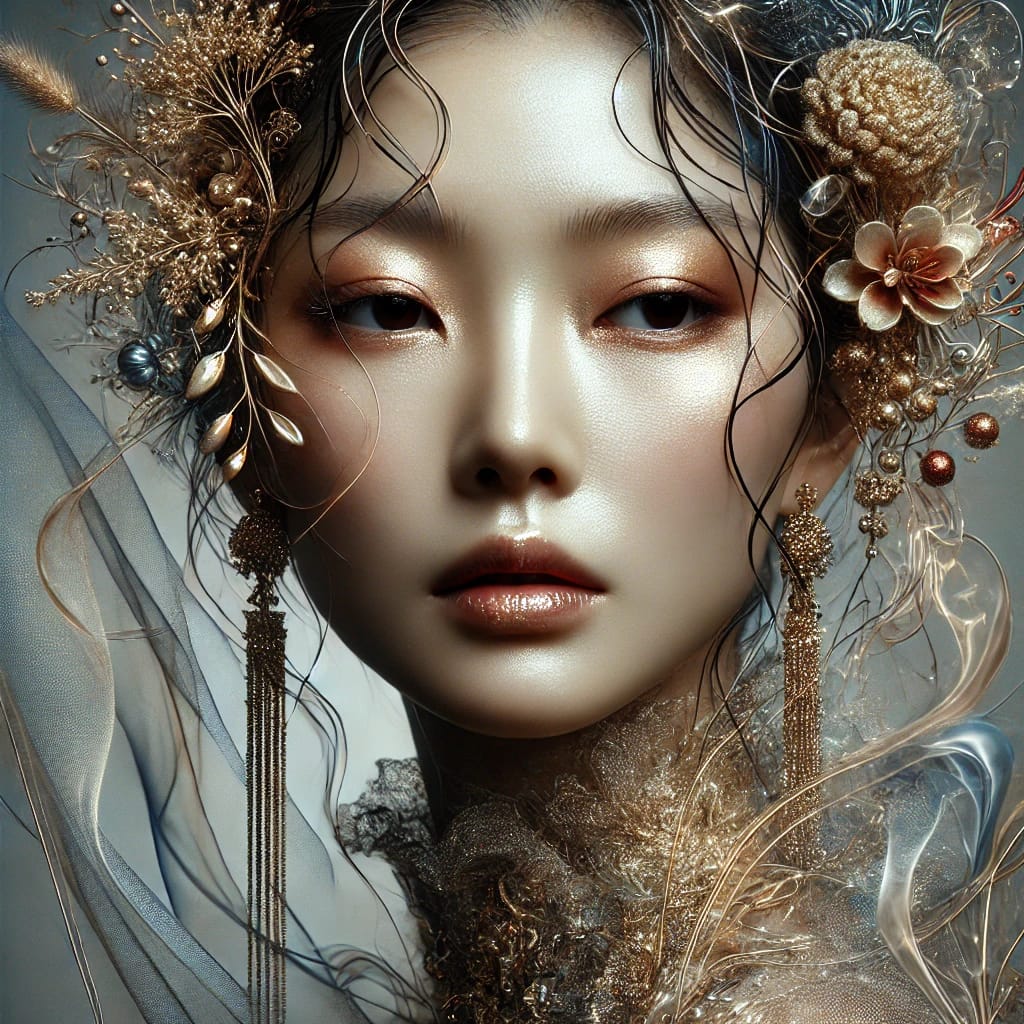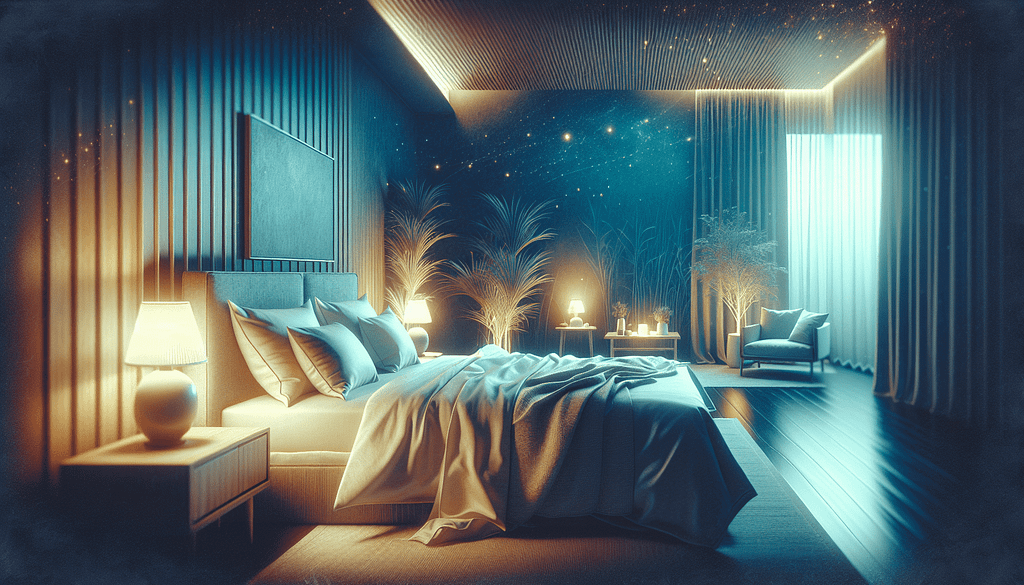"Graceful Lines for Joyful Hearts, Just Listen to the Tale of Many Parts."
In the article, “How Does A Good Night’s Sleep Contribute To Our Overall Beauty?”, you will discover the profound connection between quality sleep and your physical attractiveness. Proper rest boosts skin health, reduces the appearance of dark circles and puffiness, and promotes a radiant complexion. Additionally, sleep plays a crucial role in cellular regeneration, ensuring that your skin looks rejuvenated and youthful. By understanding the integral role that sleep plays in your beauty regimen, you’ll be empowered to prioritize rest as an essential component of your skincare and health routine. How often have you wondered about the secret to radiant skin, bright eyes, and a glowing complexion? The answer might be simpler than you think. It’s not just about the latest skincare products or fad diets; a good night’s sleep plays a pivotal role in enhancing our natural beauty.
Beauty’s Sleep Secret
Restful nights bring glow,
Skin health thrives anew,
Dark circles fade slow,
Radiance comes through.
Cellular renewal’s gift,
Youthful looks remain,
Puffiness takes a shift,
In sleep’s gentle reign.
Eyes bright, complexion clear,
Rest’s magic at play,
Beauty’s secret near,
In dreams, night, and day.
Prioritize your rest,
For skin that truly gleams,
Sleep, your beauty’s best,
Unlocks the finest dreams.
The Science Behind Sleep and Beauty
A well-rested body is equipped to repair and regenerate itself effectively, promoting overall health and beauty. Let’s delve into the science to understand how sleep impacts our appearance.
The Sleep Cycle
Your sleep is divided into several stages, each playing a critical role in maintaining your health and appearance. These stages include:
| Stage | Description |
|---|---|
| NREM (Non-Rapid Eye Movement) Stages 1-3 | Light to deep sleep, crucial for physical restoration. |
| REM (Rapid Eye Movement) Stage | Dream phase, vital for cognitive functions and emotional health. |
During these cycles, various physiological processes occur, contributing to skin repair, hormone regulation, and overall beauty.
The Role of Hormones
While you sleep, your body releases essential hormones such as human growth hormone (HGH) and melatonin. Human growth hormone promotes tissue repair, muscle growth, and skin regeneration. Melatonin, on the other hand, acts as an antioxidant, protecting your skin from damage.
Skin and Sleep: A Symbiotic Relationship
Your skin is your largest organ and serves as a barrier against environmental stressors. Quality sleep helps maintain this barrier, keeping it healthy and resilient.
Collagen Production
Collagen is a protein that gives your skin its structure and elasticity. During the deep stages of sleep, your body produces more collagen, which can prevent sagging and reduce fine lines.
Blood Flow to the Skin
Adequate sleep improves blood circulation, ensuring that your skin receives the necessary nutrients and oxygen. This results in a healthier, glowing complexion.
Repair Mechanisms
Nighttime is when your skin undergoes vital repair processes. Sleep enhances the healing of damaged cells from UV exposure and environmental pollutants, ensuring you wake up with refreshed, dynamic skin.
The Consequences of Sleep Deprivation on Beauty
Failing to get enough sleep not only affects your mood and overall health but also has visible repercussions on your appearance.
Dark Circles and Puffiness
Sleep deprivation leads to poor blood circulation, causing prominent blood vessels under your eyes to become more noticeable, resulting in dark circles. Additionally, fluid retention can contribute to puffiness around the eyes.
Dull Complexion and Skin Sagging
Lack of sleep can reduce the skin’s ability to stay hydrated, leading to a dull and uneven complexion. Chronic sleep deprivation also decreases the production of collagen, leading to sagging skin and wrinkles.
Acne and Breakouts
Insufficient sleep can disrupt hormone levels, leading to an increase in stress hormones like cortisol. This can exacerbate conditions such as acne, making your skin prone to breakouts.
The Connection Between Sleep and Hair Health
Your hair’s health is closely linked to your overall well-being, including your sleep patterns.
Hair Growth Cycle
Your hair grows in a cycle that includes growth, rest, and shedding phases. Quality sleep ensures that cells involved in hair growth are functioning optimally, promoting strong and healthy hair.
Reduced Hair Loss
Sleep enhances blood flow, supplying essential nutrients to hair follicles and reducing hair loss. Poor blood circulation due to sleep deprivation can weaken hair shafts, causing them to become fragile and prone to breakage.
Sleep and Weight Management
Your weight has a significant impact on your appearance. Quality sleep can aid in maintaining a healthy weight, which directly influences your overall beauty.
Hormonal Balance
Sleep regulates hormones like ghrelin and leptin, which control hunger and fullness. A balance in these hormones helps maintain a healthy weight, preventing issues like weight gain which can impact your skin and overall appearance.
Insulin Sensitivity
Adequate sleep improves insulin sensitivity, reducing the risk of developing conditions like obesity and diabetes. Maintaining a balanced weight ensures that your skin remains healthy and vibrant.
Lifestyle Tips for Better Sleep
There are various ways you can improve your sleep hygiene to ensure you reap the full beauty benefits of a good night’s sleep.
Establish a Sleep Routine
Creating and sticking to a regular sleep schedule trains your body to recognize when it’s time to wind down. Aim for 7-9 hours of quality sleep each night.
Create a Relaxing Sleep Environment
Ensure that your sleep environment is conducive to rest. Keep your bedroom cool, dark, and quiet. Invest in a quality mattress and pillows that provide comfort and support.
Limit Screen Time
Electronic devices emit blue light, which can interfere with the production of melatonin. Limit your usage of screens an hour before bedtime to signal to your body that it is time to prepare for sleep.
Avoid Stimulants
Limit your intake of caffeine, nicotine, and other stimulants, especially in the hours leading up to bedtime. These substances can disrupt your ability to fall asleep and stay asleep.
Practice Relaxation Techniques
Incorporate relaxation techniques such as reading, meditating, or listening to calming music into your nightly routine. These practices can help reduce stress and promote a sense of calm, making it easier to fall asleep.
Foods That Promote Sleep and Beauty
What you eat can also significantly impact the quality of your sleep and, consequently, your appearance. Here are some foods that can promote better sleep and contribute to your overall beauty.
Foods Rich in Tryptophan
Tryptophan is an amino acid that helps produce serotonin and melatonin, both essential for good sleep. Foods rich in tryptophan include:
- Turkey
- Chicken
- Milk
- Cheese
- Nuts and seeds
Magnesium-Rich Foods
Magnesium helps to relax the mind and body, preparing you for a restful night. Foods high in magnesium include:
- Leafy green vegetables (spinach, kale)
- Nuts and seeds (almonds, pumpkin seeds)
- Whole grains
- Fish
Antioxidant-Rich Foods
Antioxidants help repair skin damage and promote a healthy complexion. Foods high in antioxidants include:
- Berries (blueberries, strawberries)
- Dark chocolate
- Pecans
- Artichokes
Hydrating Foods
Staying hydrated is crucial for skin health. Foods with high water content can aid in maintaining skin moisture and elasticity. These include:
- Cucumber
- Watermelon
- Oranges
- Celery
The Role of Supplements in Sleep and Beauty
Sometimes, despite best efforts, you might need additional support to achieve quality sleep. Here are some supplements that can help improve sleep and boost your overall beauty.
Melatonin
Melatonin is a hormone that regulates sleep-wake cycles. Supplementing with melatonin can help reset your sleep pattern, especially if you struggle with insomnia or jet lag.
Magnesium
Magnesium supplements can help relax muscles and calm your mind, promoting better sleep. They are particularly beneficial if you have trouble winding down at night.
Herbal Supplements
Herbal supplements like valerian root, chamomile, and lavender can promote relaxation and help you fall asleep faster. These natural remedies have been used for centuries to treat sleep-related issues.
Collagen Supplements
Collagen supplements can support skin elasticity and hydration. They are particularly beneficial when taken at night, allowing your body to utilize them during the sleep cycle when skin repair is at its peak.
Conclusion: Embrace the Power of Sleep
Achieving and maintaining your best appearance involves more than topical treatments and external factors. Quality sleep is a vital component of any beauty regimen, contributing significantly to radiant skin, healthy hair, and overall well-being. By prioritizing restful sleep, you lay the foundation for a natural, glowing beauty that comes from being well-rested and healthy.
Invest the time and effort to improve your sleep habits, and you’ll soon notice a lasting, positive impact on your appearance and overall health. In a world inundated with quick fixes and temporary solutions, the power of a good night’s sleep stands unparalleled in its simplicity and effectiveness.




